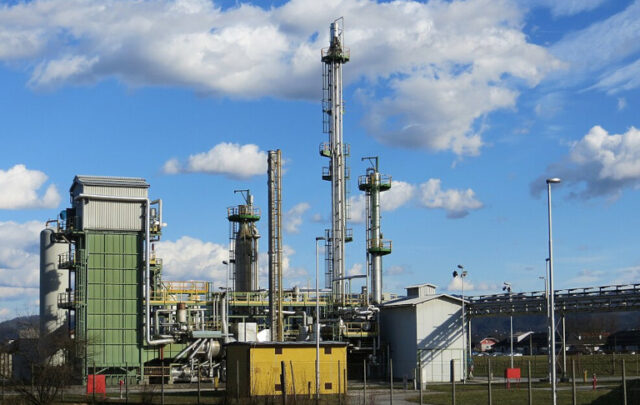Click on the headline (link) for the full text.
Many more articles are available through the Energy Bulletin homepage
European Farmers Turn to Biogas Plants
Matthew Dalton, Wall Street Journal
European governments are quietly transforming the practice of turning manure into energy from a fringe technology into a tool for both slashing greenhouse gases from farms and boosting domestic energy supplies.
Plants that convert manure, corn, grass or organic waste into electricity were historically built by just a few environmentally conscious farmers. But the European Union now counts about 8,000 so-called biogas plants, and — fueled by rising subsidies — thousands more are expected to be built over the next decade. Farmers are building plants to make a profit, not to protect the environment, and orders are rising at companies that provide the technology.
Farm emissions account for 9% to 10% of the EU’s total greenhouse gases — more than all industrial processes, such as steelmaking and chemical manufacturing, combined, according to the European Environment Agency. Much of the emissions come from two gases produced from livestock manure: methane, which has 20 times the global warming potential of carbon dioxide, and nitrous oxide, which is 300 times as potent as carbon dioxide…
(18 June 2009)
Europe Mulls Huge Solar Project
Spiegel Online, Business Week
An ambitious German-led project to supply Europe with solar energy from the deserts of North Africa will start with a meeting on July 13, an executive from the German insurance giant Munich Re told the Süddeutsche Zeitung on Tuesday. The project involves a consortium of about 20 firms—including Siemens (SI), Deutsche Bank (DB), and energy companies like RWE—and will cost €400 billion ($555.3 billion), according to Munich Re board member Torsten Jeworrek.
Jeworrek said the initiative aimed to “present concrete plans in two to three years’ time,” and start the flow of energy to Europe within a decade. Munich Re will lead the project, and the meeting in July will formally establish the group.
The consortium plans to fund a project called Desertec, which envisions relatively low-tech solar thermal power—using mirrors in the desert to heat up water, which drives turbines in a local power plant—rather than an array of high-tech photovoltaic cells.
Jeworrek declined to list all 20 members of the new funding group, but said the German Economy Ministry and the Club of Rome, a non-governmental organization based in Zürich, were also involved…
(17 June 2009)
Water for energy: The bad bet for biofuels
Peter Gleick (president, Pacific Institute), San Francisco Chronicle
In the ongoing debate about rethinking America’s energy future, there has been far too little discussion about water. It takes a tremendous amount of water to produce our energy, no matter how you measure it.
According to the USGS assessment of water use in the United States (done every five years), about half of all freshwater and saline-water withdrawals for 2000 were used for thermoelectric power. Most of this water was derived from surface water and used for once-through cooling at power plants. I will write more about this in the future, and the Pacific Institute continues to work on a wide range of water/energy connections and analysis. Today’s Water Number is one little piece of this water/energy puzzle, but a remarkable one.
Water Number: 50 gallons of water per mile. This is the water required to produce the ethanol biofuels needed to drive a car ONE mile, using irrigated corn. This number comes from a recent Environmental Science and Technology (ES&T) journal article by R. Dominguez-Faus, Susan E. Powers, Joel G. Burken, and Pedro J. Alvarez.
50 gallons per mile. Wow. This is an average value and varies significantly depending on where and how you grow corn or other potential fuel feedstocks. It can be half this value or more than twice as this value, depending on irrigation technology and, especially, climate. But by any measure, it is huge.
Some early assessments of the water implications of biofuels only counted the water needed at the factories themselves and concluded there were no major impacts:
(19 June 2009)





